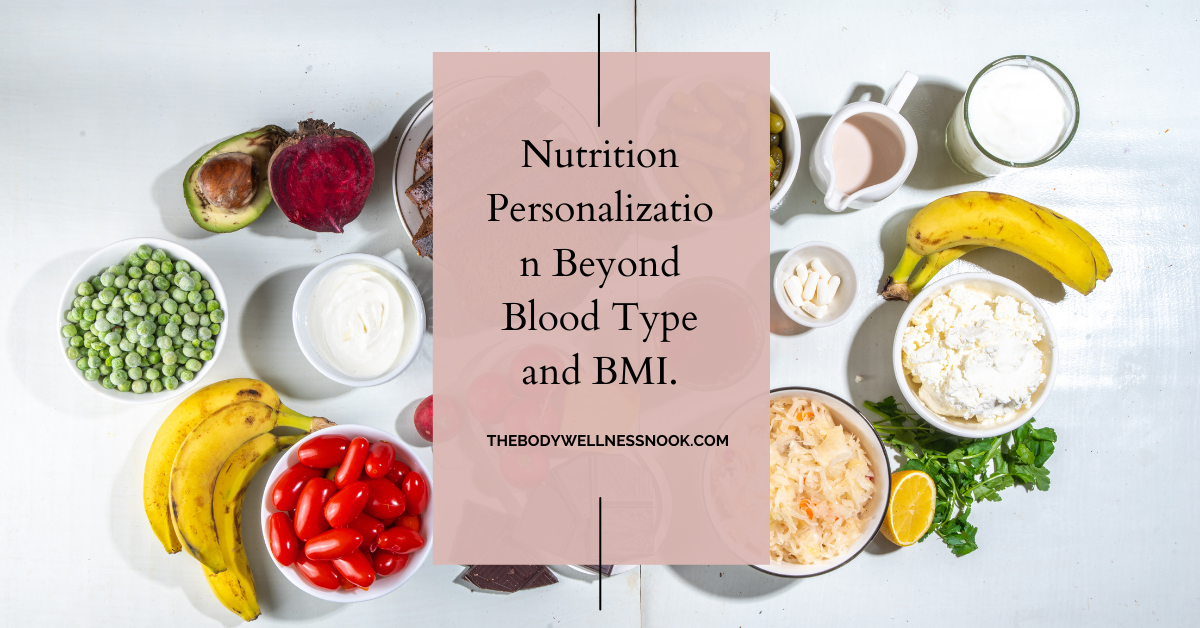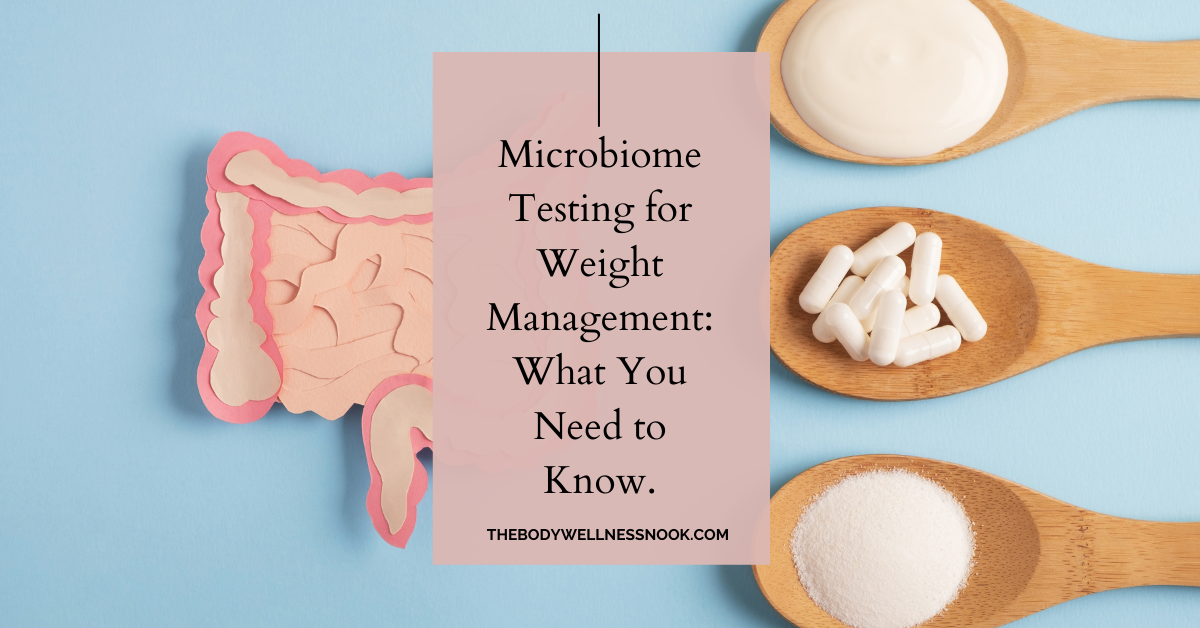Understanding Microbiome Testing
Introduction to Microbiome Testing
Microbiome testing’s like putting your gut under a microscope, sorta like peeking into your gut’s diary. It checks out the tiny creatures living in your belly—yeah, we’re talkin’ bacteria and pals. All the action’s in a stool sample. It can spot when these little guys are having a party or moping around, causing bloating, moods you can’t explain, or even random skin flair-ups. Plus, your immune system? It gives a hint about how well it’s playing nice with others (source: Medical News Today). Fancy more details? Scoot over to microbiome testing explained.
Importance of Gut Microbiome
Think of your gut microbiome as a vibrant city bustling with trillions of microorganisms. These friendly bugs are champs at breaking down food and keeping your immune defenses on their toes. Knock ’em out of whack with a bad diet, sitting around too much, or even your neighborhood’s vibe and bam, you might be shopping for trouble like IBS or the big IBD. Stuff like popping too many antibiotics turns this city into a wild west, leading to unwanted guests—hello, obesity (University of Chicago News). For a gut working at its prime, and to tackle any pesky invaders head-on, a balanced microbiome is your best bud.
Desire checking out personalized diets and boosting your belly’s health? Swing by our reads on personalized nutrition science, gut microbiome health, and how to get personal microbiome optimization kickin’ in gear.
Key Microbiome Facts
| Aspect | Description |
|---|---|
| Sample Type | It’s gotta be stool—yep, poop is the star. |
| Detected Issues | Spotting nasties like indigestion, those mystery moods, funky skin stuff, and if your immune system’s asleep on the job (Healthline). |
| Influential Factors | Eating habits, the way you live your life, and the vibe of your surroundings can all lend a hand. |
| Health Conditions Linked | Annoyances like IBS, IBD, surprise weight changes, even how you fend off bugs and sickness. |
Wanna know what your gut’s been whispering about health and keeping those ailments at bay? Give a look at our write-ups on microbiome immune system7 and microbiome autoimmune health.
Benefits of Microbiome Testing
Health Insights from Microbiome Tests
Microbiome tests offer a sneak peek at the bustling life inside your gut—it’s like a high-tech treasure map of strange critters that call your tummy home. These tests dive into the mix of over 200 kinds of bacteria, viruses, and fungi lounging around in there (Medical News Today). Why do folks get chatty about microbiome checks?
- Gut Tune-Up: Get the scoop on which bacteria have taken up residence in your gut. Knowing who’s partying in there can help figure out your digestive groove. This info can lead to probiotic tips just for you.
- Gut Detective Work: Untie the knots of mysterious gut troubles like IBD or IBS by discovering micro hitchhikers causing havoc.
- Food Harmony: Craft a dining plan that matches your tummy’s mood swings, maybe with help from the food science pros.
Potential Impact on Chronic Conditions
Microbiome testing isn’t just about belly business. These tests might help shine a light on stuff like lingering illnesses, giving you fresh angles on how your gut’s vibe might be touching the rest of you.
- Stubborn Gut Conditions: Identify troublemaker bacteria linked to nasties like Crohn’s disease and ulcerative colitis (University of Chicago News).
- Autoimmune Snags: Rethink how gut bugs could mess with your immune system. Use these insights to build smarter game plans for autoimmune quirks (microbiome autoimmune health).
- Tummy and the Scale: Connect dots between belly germs and body weight mysteries. Getting a handle on your gut’s cast of characters could nudge your weight in the right direction (microbiome weight loss).
- Mind-Gut Chatter: Turns out our guts love gossiping with our brains. Imbalances in the gut might stir up mental storms like anxiety or depression (microbiome mental health).

brain-gut connection. Communication between these organs is important to understand the role of intestinal flora in the emergence of diseases such as depression. - Food Reaction Guards: Some gut bacteria, like Clostridia, can stand guard against food allergies, fortifying your gut’s defenses.
By putting a spotlight on your gut’s community, microbiome testing offers pointers for mastering your food habits and daily routine unlike anything your folks or Google might know. If you’re curious about the secret life of your tummy and its influence on your health, wander through resources on gut microbiome health and personal microbiome optimization.
Types of Microbiome Tests
Getting your gut game on point can revolutionize your health. Knowing what kind of microbiome tests are out there, how they use DNA, and the lowdown between doing it in your pajamas versus at the doc’s office, can make all the difference.
DNA Analysis in Microbiome Testing
When it comes to DNA stool tests, it’s like peeping into your gut’s secret society of bacteria. These sleuthy little tests break down who’s who in your belly based on their DNA fingerprints. Basically, send in a poop sample, and you get the scoop on what types and how much bacteria are hanging out in your digestive tract. It’s like a bacteria census. Spotting overactive troublemakers in your gut gang can clue you into everything from bloating to autoimmune weirdnesses you might be wrestling with.
Today’s tests use DNA wizardry to tally up good guys and weed out the bacterial baddies. Knowing what’s up in your gut helps you figure out whether you’re heading into a storm of gut nastiness or basking in gut health sunshine.
Commercial vs. Clinical Microbiome Tests
You’ve got two main tracks for gut testing: the do-it-yourself home kits, or the more buttoned-up, doctor-run tests. Each comes with its ups and downs.
Commercial Microbiome Tests
These tests are like DIY science projects you do over your morning coffee. Pop a sample in the mail, kick back, and wait for the internet to tell you what’s what in your gut. They even throw in some handy tips to get your intestine on a wellness journey.
These DIY kits are all about:
- Ease: Sit back and relax—it’s all at-home.
- Dollars: Usually, these won’t burn a hole in your pocket.
- Get-to-It-Ness: Your results slide right into your digital world.
- Extras: Pay a little more, and boom—they’ll be your gut coach for life.
Clinical Microbiome Tests
The pro route involves visits to hospitals or clinics, where they take things a bit more seriously. A doctor leads the show, which often makes these tests part of a larger detective hunt into your general health mystery.
What to expect from a clinical test:
- Trustworthy Results: Docs make sure it’s all on the up and up.
- Extend-a-Health: Usually a chapter in your bigger health story.
- Professional Input: Doc’s in the loop with personalized health wisdom.
| Type of Test | Ease | Dollars | Trust | Results | Extras |
|---|---|---|---|---|---|
| DIY Style | High | Less | So-So | Online/App | Subscriptions & Tips |
| Pro Level | Medium | More | Hi-Trust | Doctor Delivers | Part of Health Package |
Knowing your test options gives you the power to shake up your health strategy. Ready to tweak that diet plan based on your belly bugs? Curious about how to decode those test results? Or maybe you want a bigger picture about gut health mojo? We’ve got you covered for all of it.
Whether you go for an at-home test or place your trust in a clinical setting, your path to letting bacteria work for your health is wide open.
Cost Considerations
When I’m thinking about adding microbiome testing to my health toolbox, the first thing that often pops into my mind is the cost. Prices can jump all over the place, depending on the kind of test, who’s offering it, and any bells and whistles that might come with it.
Pricing of Microbiome Tests
Microbiome tests can cost anywhere from a little to a lot. You could snag a basic home kit for less than a hundred bucks. On the flip side, if you want the works—like detailed analysis plus tests for food sensitivities—you might be shelling out close to a grand (Medical News Today). Knowing these cost differences helps me figure out which test suits my needs and keeps my wallet happy.
| Type of Test | Price Range |
|---|---|
| Basic Home Test | Under $100 |
| Mid-Range Test | $200 – $400 |
| Comprehensive Test | $500 – $1,000 |
Lots of companies offer multiple test tiers. That means I can choose based on what I want for my health and how much I’m willing to spend. If I’m just looking for a gut-health snapshot, a cheaper test might do the trick. But if I need deep insights to tackle chronic issues, spending more could be a smart move.
Subscription Options and Add-Ons
Besides one-off test buys, many companies have subscription deals offering regular tests and updates on gut health. Prices can vary but often pack extras like tailored dietary tips or access to a diet expert. This is a big help if I’m diving into personal microbiome optimization.
Subscription options might look like this:
- Monthly Testing Subscription: Handy monthly test kits for $50 to $100 a pop.
- Quarterly Testing Subscription: Kits every three months, costing $200 to $300 each.
- Annual Plan: Pay once for a year’s worth of testing, saving some cash over monthly charges.
| Subscription | Frequency | Price Range (per year) |
|---|---|---|
| Monthly | 12 times/year | $600 – $1,200 |
| Quarterly | 4 times/year | $800 – $1,200 |
| Annual | Once/year | $500 – $1,000 |
These plans might offer add-ons like food sensitivity checks, personalized diet advice, and a nutritionist’s guidance. For folks like me who want to keep tabs on gut health and adapt their habits based on up-to-date info, these plans could prove valuable.
By getting a grip on microbiome testing costs and subscription choices, I figure out what fits my health ambitions and budget. Checking out reviews and comparisons like our piece on genetic microbiome testing comparison can also point me in the right direction.
Microbiome Testing Limitations
Let’s chat about some quirks and pitfalls when it comes to microbiome testing, especially in terms of figuring out your diet and gut health. Knowing what to watch out for can really help when you’re diving into the world of personal microbiome optimization.
Accuracy and Interpretation of Results
So, here’s the deal: when they test your microbiome, they’re basically doing DNA checks on bacteria from your potty party. But the types and numbers of these little critters can swing wildly between samples, which makes getting consistent results a bit like playing a game of bacterial roulette. Plus, the tests don’t tell if these bacteria are alive and kicking or just ghost bacteria floating around, which throws a wrench in the accuracy works (Medical News Today).
Deciphering these results? It’s like trying to understand a toddler’s crayon drawing: you get some colorful info, but it might not mean much to your doc. The science and tech to really use microbiome tests in healthcare haven’t caught up yet.
Here’s a quick look at some accuracy issues:
| Limitation | What’s Up |
|---|---|
| Sample Shuffle | Bacteria types and numbers do their own thing from sample to sample |
| Zombie Bacteria | Can’t tell if they’re alive or sleepy dead |
| Doctor’s Toolkit | Not really a thing in medical care yet |
For a deep dive into making sense of these tests, cruise over to our piece on microbiome test results interpretation.
FDA Recommendations and Warnings
Heads up: the FDA hasn’t given the thumbs-up to using home microbiome tests to figure out health problems. While these tests might shed some light on your gut buddies, if your belly’s been doing the twist for too long, it’s time to call in the pros for a chat.
Approach these home tests with a grain of salt. They might throw you some ideas about bad bacteria or conditions lurking in your gut, but those DIY probiotics or diet tweaks? Still in the Wild West stage (Houston Methodist).
Here’s a heads-up on what’s in the FDA’s playbook:
| FDA Guidance | What’s It Say |
|---|---|
| Stamp of Approval | Nope, FDA says no approval for these home kits |
| Health Detective | Not your tool for solving health mysteries |
| Doc’s Orders | Doctor advice needed for tummy troubles that stick around |
Look out for these bumps on the road to microbiome testing to manage expectations. And for more on this, check out our reads on personalized nutrition science and microbiome diversity.
Who Should Peek into Microbiome Testing
For Those with Tummy Troubles
So, your gut’s been acting crazy with bloating, or maybe you’re flipping between constipation and diarrhea? You might want to give microbiome testing a go—could be your gut yelling for help. These tests dig into the tiny creatures living in your belly, searching for what’s outta whack with your microbes.
Bugs in your gut gone wild might stir up trouble like those fancy-named digestive issues: inflammatory bowel disease (IBD) and irritable bowel syndrome (IBS). Blame your last takeout binge or another bout of antibiotics; they mess with your belly’s perfect balance, according to some brainiacs at University of Chicago News.
Plus, if you’re wondering why probiotics aren’t your gut’s superhero, these tests might spill the beans. Stomach acting stubborn? Peek into what those test results mean, and you just might find that secret to conquering your own digestive drama.
Curious Cats Loving Gut Info
Gut pretty chill but still curious about what’s happening down there? Microbiome tests let you snoop into your belly’s business, for the love of knowledge! Your gut’s more than a stomach; it’s a powerhouse affecting how you fight off germs, feel emotionally, and even manage hormones (Cleveland Clinic).
Pop culture’s one thing, but these tests lift the lid on just how much your munching habits and daily shenanigans mess with your gut’s ecosystem. Get the dirt on what’s lurking inside and maybe tweak a few habits? Better eating hacks and tips might be just around the corner, like what I found on personalized nutrition guidance.
For those of us who love to fuss over gut balance, picking the right probiotics just might be your new best thing—here’s the scoop on tailored probiotic picks. If you wanna geek out more, chat with the nerds over at nutrition personalization magic to keep your inside world spinning just right.
And if you really wanna deep dive, why not flip through some meaty reads on gut microbiome health to see how it ticks into the bigger picture of long-lasting health and lifestyle feels.
Future of Microbiome Testing
Research Advances in Gut Microbiome
Lately, scientists have been all over this tiny universe inside of us—the gut microbiome. It’s like the puppeteer behind the curtains, pulling strings that affect not only digestion but our immune system, mood, and even things like allergies and heart trouble (University of Chicago News). I’ve been all kinds of curious about how these little guys are multitasking like pros.
| Health Conditions Linked to Gut Microbiome | Examples |
|---|---|
| Digestive Conditions | Crohn’s Disease, Colon Cancer |
| Brainy Stuff | Alzheimer’s Disease |
| Metabolism Mischief | Diabetes |
| Heart Issues | Heart Snags |
| Breathing Problems | Asthma |
| Immune Battles | Allergies, Cancer |
Clinical Applications and Development
Now, in the real world, the gut’s role is getting a solid spotlight. If your gut flora’s out of whack, it might mess with things as big as cancer and heart health, even stir up inflammatory bowel disease (NCBI).
Probiotics and other gut-friendly treatments are in the works to get the gut crew back in harmony. I’m thrilled about the idea of these treatments becoming like the Beyoncé of health care—targeting the troublemakers and restoring balance better than ever.
| Microbiome Testing Areas | How They Help |
|---|---|
| Diagnosing Problems | Spotting Gut Imbalances |
| Future Gazing | Seeing Possible Health Issues |
| Treatment Tips | Tailored Probiotic Picks |
With ongoing research, the way we handle health is changing big time. We’re looking at a future where taking care of your gut might mean tailor-made diets and treatments just for your unique little microbes. For more on what your belly has to say about nutrition, check out our personalized nutrition science section.
Staying up-to-date with the newest research breakthroughs in gut microbiome, I’m jazzed about how this field could offer new ways to tackle lingering health issues and boost how we feel overall. Plus, with AI and data crunching joining the game, we’re looking at even brighter ways of finessing personalized nutrition, as you’ll read about in our piece on AI personalized nutrition.
Gut Microbiome Impact
Ever wondered what’s brewing in your belly? The little universe inside your gut, called the microbiome, greatly influences how you feel and function. Let’s explore what these microscopic buddies mean for you.
Gut Microbiota and Human Health
Think of your gut as a bustling city, teeming with trillions of tiny inhabitants – bacteria, fungi, and viruses. These helpful hitchhikers make sure the city (you) runs smoothly. They break down food, produce vitamins right where you need them, and keep your immune system in fighting shape.
When these microbes throw a party, they create metabolites – little chemical messages that affect how your body performs. Take short-chain fatty acids, or SCFAs for instance. These are like the gut’s handyman, fixing up your intestines and keeping inflammation in check.
| Gut Metabolite | Health Impact |
|---|---|
| Short-Chain Fatty Acids (SCFAs) | Tune up gut, chill out inflammation |
| Trimethylamine N-oxide (TMAO) | Bad news for your ticker |
Knowing what critters are hanging out in your gut and what exactly they’re making can offer some serious insight into how you’re doing health-wise. This intel is the basis for personal microbiome optimization.
Link to Chronic Diseases
Gut germs can either be your best friend or a sneaky foe when it comes to chronic illnesses. Some, like those spitting out trimethylamine N-oxide (TMAO), have been tied to heart issues.
Then there are the Firmicutes, a big bacteria family. A good mix of these guys usually spells out better health outcomes, like a reduced risk of sickness.
| Chronic Disease | Associated Gut Microbiota |
|---|---|
| Cardiovascular Disease | TMAO-spouting troublemakers |
| Breast Cancer | Certain bacterial gangs worsening things |
That’s why peeking into your own gut lineup through genetic microbiome testing comparison can spot these bacterial baddies and help you fine-tune how you eat and live.
For those who are obsessed with gut feelings, the tale of the tapes from microbiome tests is a game changer. By getting to know what’s going on down there, you can make smarter diet choices to dodge chronic illness bullets. Whether it’s boosting your gut health or connecting dots with microbiome and mental health, having a map of your gut’s micro-world is like knowing who to invite (or not) to your next health party.






